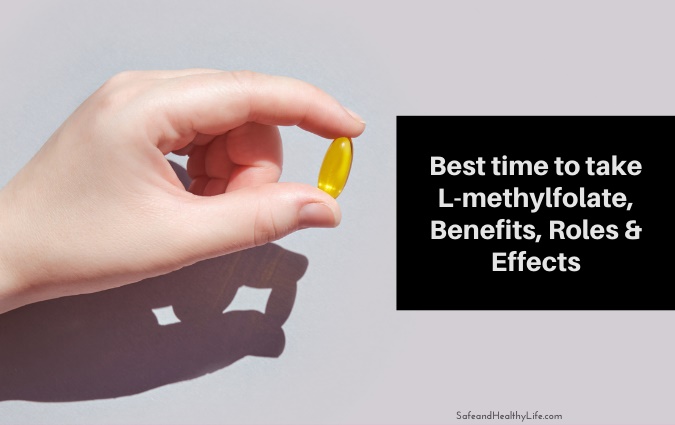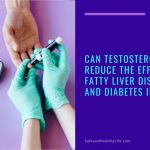
Folate is a type of B nutrient commonly found in many foods. Folic is a corrosive man-made type of folate that is added to controlled food types or nutrient and mineral supplements. The human body needs folate to form red platelets.
The need (inability) of folate in the human body can be caused by certain diseases, by taking certain medications, or by not getting enough folate in the diet. Folate deficiency can cause low red platelets or yellowing.
Folate deficiency can also lead to undetectable levels of specific amino acids in the blood, a condition known as hyperhomocysteinemia.
L-Methylfolate is a clinical nutritional supplement for use in people with conditions marked by folate deficiency. L-Methylfolate is additionally utilized in individuals with schizophrenia determined to have folate insufficiency or those with folate inadequacy or hyperhomocysteinemia.
L-Methylfolate is not an opioid or anesthetic. In any case, L-Methylfolate enhances the effects of the above prescription.
Folate Deficiency
Folate is also known as vitamin B9. This cell is one of the important nutrient reserves for digestion. Folate is considered to be the basic component in the mixture of DNA, RNA, and proteins.
Thus the defect impairs cell division and possibly leads to the accumulation of toxic metabolites, for example, homocysteine. In addition to vitamin B12, folate is important in regulating the production of red platelets.
The preparation form of folate is corrosive, which is converted into folate in the body. Since folic acid is more effectively consumed by the body, it is a commonly used component in supplements and bread food sources.
Most plants, especially green vegetables and animal products contain folate. After that, most solid people have enough folate from their eating regime to avoid the error, but sometimes the body can extend the request. If the supplement does not occur, it indicates an error.
Folate deficiency is more common in pregnant and lactating women, people with persistent gastrointestinal conditions, people who follow a limited diet due to weight loss policies or diseases, people with alcohol dependence, and people over 65 years of age.
Folate deficiency is not the only problem. Treatment is necessary and may include treatment if there are any changes in diet. If left untreated, folate deficiency can lead to severe confusion.
Best time to take L-Methylfolate
L-Methylfolate can be taken with or without food in the morning or at night. Benefits usually provide results within 2 months.
Important: Do not take regular folate (or folic acid) supplements with L-methyl folate, as they may inhibit its retention in the brain.
The distinction between L-Methylfolate and folic acid
There are currently no restrictions on folic acid or L-Methylphosphate supplements. For folic acid, a multivitamin contains a total of 400 mcg and prenatal nutrient 800 mcg. L-methyl folate is available over the counter or as a remedy.
The best food sources of nutrient B9 are whole foods such as green vegetables. If you truly need to take supplements, methyl folate is a decent option to folic corrosive.
Benefits
Subsequently, taking supplements containing mMethylfolate may help in the fight against pain. MTHFR and L-Methylfolate include repairing DNA, aiding and abetting invincible abilities, the body’s detoxification framework, building energy and this is just the tip of the iceberg.
L-Methylfolate (like metformin and Arcofolin) is a novel sort of folate that has direct bioavailability and is generally found in food sources.
Interestingly, folic acid, which is important for other ritual dietary supplements, must be started before it can be used by the body. The viability of this metabolic cycle varies from person to person, meaning that folic acid may not be satisfactorily converted into metabolic dynamic folate by some individuals.
L-Methylfolate intake in depression
Significant chronic problem Dual-blind, a simulated treatment regimen of L-M in patients with folate deficiency has shown that adding 7.5 or 15 mg of L-Methylfolate to standard treatment has provided primary medical and social health benefits.
As interest in the use of folate to treat depression has grown, we have received more and more inquiries about the use of L-Methylfolate (sold as Deplin) alone or with Energizer during pregnancy.
The U.S. General Health Service and the CDC recommend that all women of childbearing age take 0.4 mcg (400 mcg), as women with low folate levels have a higher risk of having a neural cylinder surrender (NTD) and having a miscarriage. Does. Eating folic acid daily. (Most prenatal nutrients contain 0.8 mcg or 800 mcg of folic carcinogens.)
The broad association of the 677T genotype with progression in fuzzy expressions after L-Methylpholate treatment is consistent with works showing that the 677TT genotype is linked to L-Methylpholate deficiency and fuzzy signals.
Role of L-Methylfolate
Agents have been exploring the link between folate deficiency and significant depression for the past fifty years. Folate requires the enzymatic conversion of L-Methylfolate to a naturally occurring dynamic folic acid type and can be recommended as a professionally prescribed medical diet.
The MTHFR compound that catalyzes the rate-determination advance in the L-methyl folate association is based on the specific polymorphism that forces the catalyst less. This may indicate that low levels of L-Methylfolate are available to activate Tetrohydropropyopterine for the formation of serotonin in the raffia core.
Ongoing information strongly suggests that L-Methylpholate is a potent extension method for underlying signs and significant grief in patients with treatment-safe grief. Because accessible data related to useful extension systems are grouped, physicians often rely on growth options based on specific manifestation, avoidance of secondary effects, or cost.
This article seems to suggest that patients with hereditary changes in MTHFR, early life misfortune, as well as a combination of obesity have a greater potential for L-Methylpholate proliferation.
Effects of L-Methylfolate
Out of a total of 119 evaluations, L-Methylfolate 10 has a normal rating of 7.8 for depression treatment. 73% of commentators reported a positive result while 15% reported a negative result.
Remarkably, 8% of responders had a spectacular response with a score of 10 and an incredibly high degree of depression.
In another study where patients were surveyed for efficacy upon the use of L-Methylfolate as primary antidepressant medication, the numerical rating scale responses showed that 47% responded well to treatment after 4 weeks.
In general, it is extremely rare for an antidepressant to show such consistent results. 8% of patients, all with a score of 10 on the depression rating scale (extremely severe depression), reported complete remission.
A further 40% of patients showed significant improvement and 7% reported minimal improvement. A whopping 91% of responders were satisfied or very satisfied with this treatment protocol after 4 weeks.
This antidepressant medication has a high potential to affect the lives of many. Furthermore, these studies have been done with L-methyl folate in doses from 10mg up to 30mg per day, in a single dosage protocol.
The authors do not state whether they combined L-Methylfolate with other medications such as Energizer or other antidepressants.
About The Author:
Mahamudul Hasan is a professional SEO expert and blogger. He is the owner of an SEO agency and has a personnel blog. You can visit his blog onethink.net, thehealthnews24.com and usatime.org, and more.




